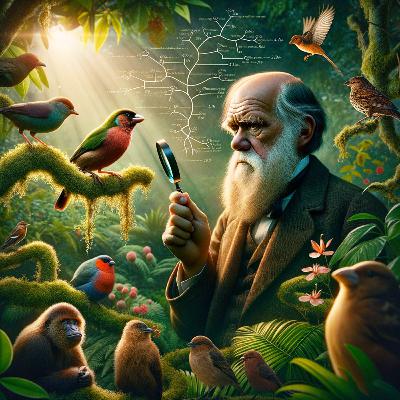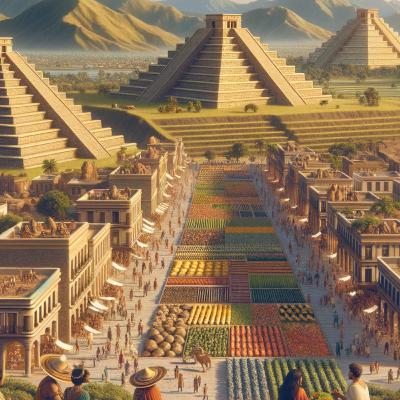The secret life of Charles Darwin: the unfolding evolution revolution
Description
This episode traces the revolutionary science of evolution by natural selection, conceived by Charles Darwin, whose work is considered one of the most significant intellectual achievements in human history. We explore the beginnings of this world-changing theory, starting with Darwin’s early years, marked by an insatiable curiosity for collecting specimens, and the crucial moment in 1837 when he penned two simple words, “I think,” beside a sketch of the branching tree of life.
We delve into the five-year voyage aboard HMS Beagle, an unprecedented opportunity where Darwin established methodologies still used by modern field researchers. Discover the profound implications of his observations, from finding fossils of giant extinct mammals in Patagonia that resembled smaller, living species to his time in the Galápagos Islands, where he noted the systematic differences in the shells of giant tortoises and the distinct species of mockingbirds on each island.
The description also covers Darwin's "secret years", during which he meticulously gathered evidence, influenced by Thomas Malthus's essay on the struggle for existence. We discuss the dramatic rush to publication caused by the independent discovery of the same theory by Alfred Russel Wallace in 1858.
Finally, we explore Darwin’s enduring legacy and modern relevance: his framework is still used by scientists to understand everything from antibiotic resistance in bacteria and cancer cell evolution to cultural evolution in human societies. Darwin's insights continue to guide contemporary research on climate change adaptation and even inform the use of evolutionary algorithms in modern computer science. His work fundamentally transformed humanity’s self-understanding, showing that we are part of nature, sharing common ancestry with all other life on Earth.
Read more: https://theurb.co/darwin-theory
























